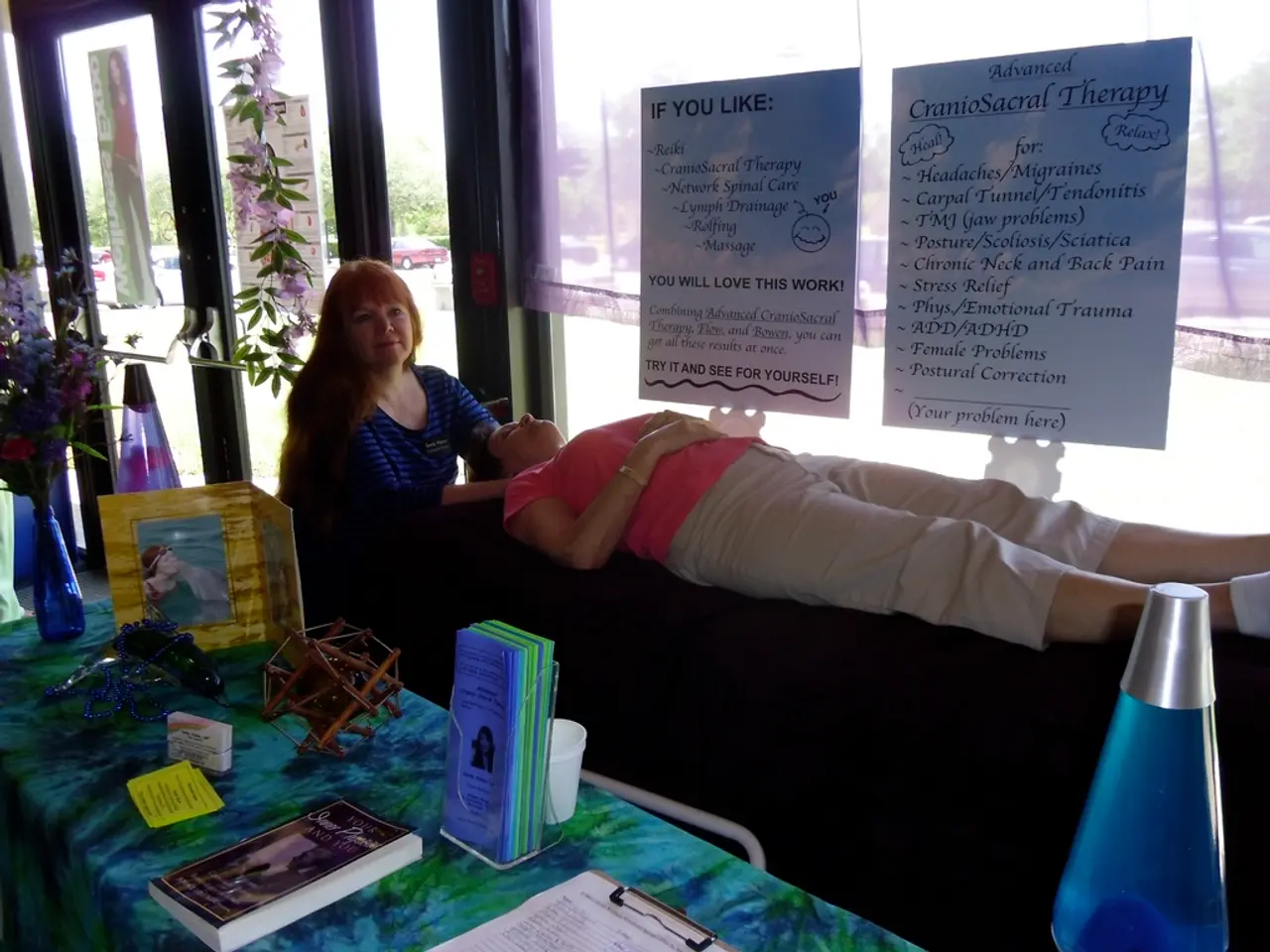Schizophrenia: Exploring Treatment Options and Beyond
Schizophrenia, a complex and serious mental health disorder, affects approximately 0.25 to 0.64% of the United States population. Recognizing its signs and reporting any suicidal thoughts is crucial, as it paves the way for effective management and recovery.
Current treatment options for people living with schizophrenia involve a combination of pharmacological and non-pharmacological approaches, tailored to individual needs.
Pharmacological Treatments form the cornerstone of schizophrenia treatment. Antipsychotic medications, primarily targeting dopamine dysregulation, are instrumental in managing the disorder. First-Generation (Typical) antipsychotics like haloperidol and chlorpromazine effectively reduce positive symptoms but can cause side effects such as tremors and sedation. Second-Generation (Atypical) antipsychotics, such as risperidone, olanzapine, quetiapine, and clozapine, have a broader efficacy including some negative symptoms but carry risks like weight gain and metabolic issues. Newer/Next-Generation options like Cobenfy™ (xanomeline + trospium) show promise with fewer motor side effects. Long-Acting Injectables (LAIs) like aripiprazole monohydrate are valuable for improving adherence, sustaining symptom control, and functional recovery; early introduction and shared decision-making are recommended to reduce stigma and optimize outcomes.
Non-Pharmacological and Psychosocial Interventions play a vital role in schizophrenia management. Cognitive Therapy and Rehabilitation, including cognitive remediation and community-based training, enhance psychosocial functioning and resilience. Coordinated Specialty Care (CSC), a team-based approach incorporating psychotherapy, personal and family therapy, cognitive support, and vocational rehabilitation, improves long-term recovery outcomes. Digital Therapeutics, such as the investigational CT-155, used adjunctively with antipsychotics, have demonstrated improvement in negative symptoms such as motivation and sociality, offering innovative treatment avenues.
Management Strategies emphasize early detection and treatment initiation, as they lead to faster and fuller responses, reducing relapse rates significantly. Continuous medication use with psychosocial support can decrease 1-year relapse from 65-80% to around 30% or less. Long-term treatment duration varies, often lasting at least 1-2 years after the first episode for chronic illness. Personalized treatment plans are essential, as responses and tolerability vary widely among individuals. Continuous monitoring and collaborative care with healthcare providers optimize adherence and functional recovery.
Recovery from schizophrenia can include experiencing fewer psychotic episodes, improvements in relationships and functioning at work, living independently, changes in attitudes, feelings, goals, and skills, and having symptoms that are mild enough not to affect daily activities. Cognitive behavioral therapy (CBT) is the main type of psychotherapy used for schizophrenia, focusing on how thoughts, feelings, and attitudes can affect behavior.
Family members or friends may play a role in helping a person manage schizophrenia by becoming aware of changes in their mental state that might indicate a potential episode and helping remind a person to take medication and attend therapy sessions. Practicing self-care, such as maintaining good health, having a good relationship with a community mental health team, and avoiding illegal drugs, alcohol, and smoking, may help with a person's quality of life.
It is essential to note that although many will experience the occasional return of symptoms, most people recover after experiencing a schizophrenic episode. According to Mental Health UK, 1 in 10 people who receive schizophrenia treatment experience a lasting recovery, 1 in 5 experience some improvement, and 1 in 2 manage the condition as a long-term illness. If someone is at immediate risk of self-harm, suicide, or hurting another person, call 911 or the local emergency number, or text TALK to 741741 to communicate with a trained crisis counselor.
There is currently no cure for schizophrenia, but with treatments and lifestyle adjustments, people with schizophrenia may experience fewer instances of symptoms returning, although this may look different for each person. Community-based mental health care is key for treatment and recovery. Without treatment, symptoms of schizophrenia may become more severe.
Antipsychotics are medications used to treat schizophrenia, and examples include aripiprazole, olanzapine, risperidone, quetiapine, asenapine, lurasidone, sertindole, ziprasidone, brexpiprazole, molindone, iloperidone, diazepam, clonazepam, and lorazepam.
In the United Kingdom, it is suggested that with treatments and lifestyle adjustments, if required, it is possible to experience fewer instances of symptoms returning, although this may look different for each person. Cognitive symptoms can include issues with attention, memory, concentration, and making decisions. Treatments for schizophrenia usually involve a combination of talk therapy, medications, and lifestyle management.
Psychosis can involve delusions, hallucinations, illogical thoughts, and movement disorders. Negative symptoms can include a loss of interest in usual daily activities or difficulty being motivated. Many treatments and care options are available to help manage symptoms and improve the quality of life for people with schizophrenia.
With proper care and support, people with schizophrenia can lead healthy, fulfilling lives.
- The health-and-wellness of individuals with schizophrenia is significantly improved through a combination of pharmacological and non-pharmacological treatments.
- Antipsychotic medications, such as aripiprazole and olanzapine, play a crucial role in managing schizophrenia, specifically targeting dopamine dysregulation.
- Non-pharmacological interventions like cognitive therapy, rehabilitation, coordinated specialty care, and digital therapeutics contribute to enhancing psychosocial functioning and resilience for people with schizophrenia.
- Mental health recovery from schizophrenia can involve experiencing fewer psychotic episodes, improvements in relationships, work, and daily activities, and a change in attitudes and skills.
- The science of psychiatry offers various therapies and treatments for schizophrenia, enabling people with the disorder to lead healthy, fulfilling lives.




